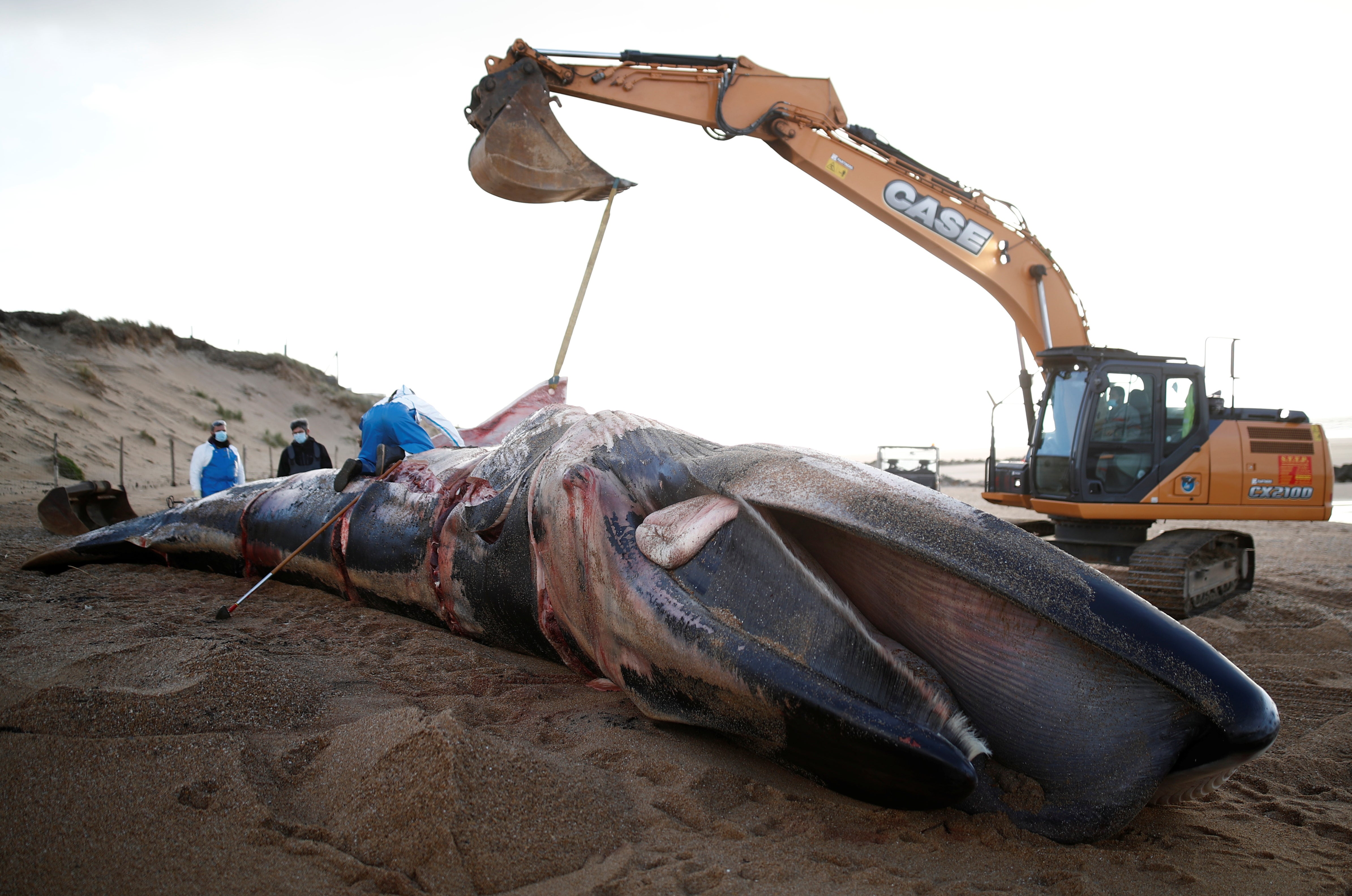Marine biologists probe mystery illness after spike in whales washed up on French beaches
Creatures do not appear to have been hit by ship or caught in trawler's net

Your support helps us to tell the story
From reproductive rights to climate change to Big Tech, The Independent is on the ground when the story is developing. Whether it's investigating the financials of Elon Musk's pro-Trump PAC or producing our latest documentary, 'The A Word', which shines a light on the American women fighting for reproductive rights, we know how important it is to parse out the facts from the messaging.
At such a critical moment in US history, we need reporters on the ground. Your donation allows us to keep sending journalists to speak to both sides of the story.
The Independent is trusted by Americans across the entire political spectrum. And unlike many other quality news outlets, we choose not to lock Americans out of our reporting and analysis with paywalls. We believe quality journalism should be available to everyone, paid for by those who can afford it.
Your support makes all the difference.Marine biologists fear a mystery viral disease could be to blame after at least six malnourished whales were found washed up along the western coastline of France.
Researchers used a mechanical digger and long knives to dissect a fin whale, the second largest species of whale after the blue whale, after a spike in deaths.
None of the creatures appears to have been hit by a ship or caught in a trawler's net, leading investigators to suspect a viral pathogen may be causing the deaths.
Willy Dabin, a researcher from the Pelagis Observatory, who was working on one corpse, said: ”We have what is almost an epidemic or, at any rate, an abnormal spike in deaths”.
The most recent fin whale corpse was found on Friday near Saint-Hilaire-de-Riez. It measured nearly 16 metres and weighed an estimated 10 tonnes.
The common fin whales have all died within the past six weeks. All have been malnourished and shown evidence of haemorrhaging in the cardiac and respiratory systems.
A seventh, non-native whale was also found washed up, but researchers said they believed that animal had died of natural causes.
"The question lurking in the background is: are humans a contributing factor in their capacity to upset the environment?" Mr Dabin said. "Either by impacting food availability or polluting the living environment, which could leave the whales more vulnerable to disease."
Officials put guards near the carcass at the weekend to keep intrigued locals at a distance.
Laurent Boudelier, a former mayor of Saint-Hilaire-de-Riez, shared photos of the latest dead whale on Facebook, writing that specialists had been sent to the area and urging the public to “absolutely not go near” the area.
Whale carcasses have been known to burst due to a buildup of gas during the decomposition process.
"It's disgusting," said one local man. "I don't know how they're going to remove it. Cut it up piece by piece?"

Join our commenting forum
Join thought-provoking conversations, follow other Independent readers and see their replies
Comments